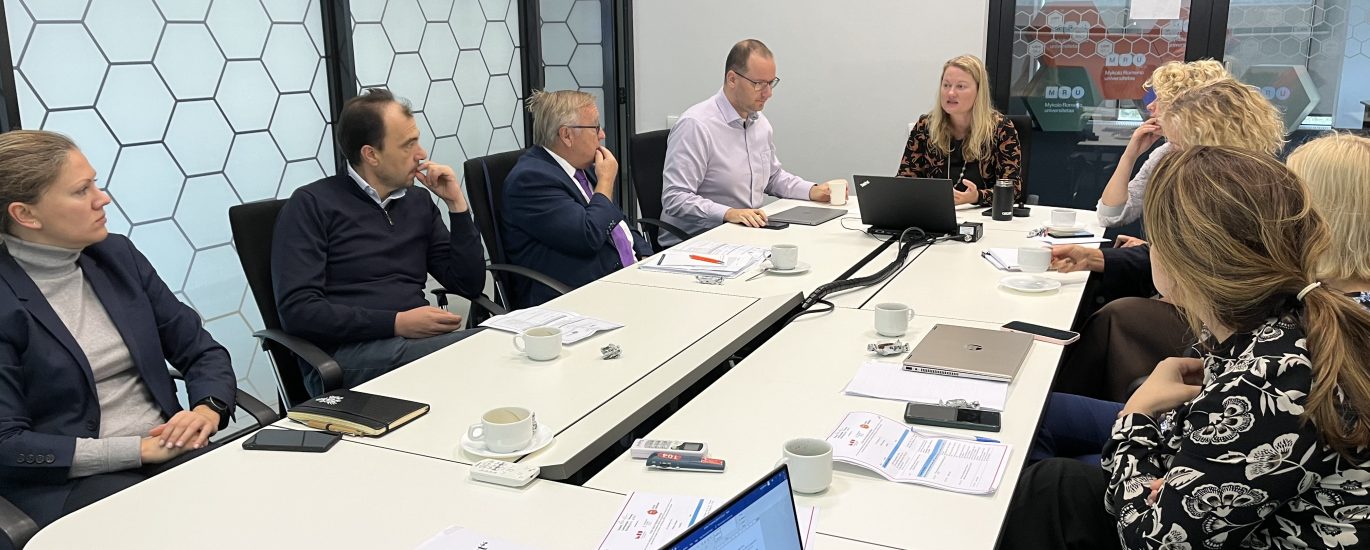


Throughout the year 2021/2022 the team of the Project “The Portrait of a Judge” has created and elaborated a model of competences of a judge to be assessed in selection, evaluation and promotion procedures. To get a clear overview of a situation in several countries the competences of a judge singled out in the model are currently being evaluated through a SWOT analysis of Czech Republic, Lithuania and Albania. To start the review process an international team of experts met in Vilnius (Lithuania) on the 21st-23rd of September for a three day in-person meeting with a twofold aim: to finalize a methodology of performing SWOT analysis and to collect data for the SWOT analysis of Lithuania.
The Lithuanian members of the Project team, together with Professor Karel Klima (Metropolitan University of Prague, Czech Republic), Ms. Naureda Llagami and Ms. Helena Papa (High Judicial Council of Albania) and Mr. Elton Lula (Albania) have reviewed a draft SWOT analysis template, discussed the critical points to be assessed through this analysis and proceeded to meet with members of various bodies and experts taking part in the selection, evaluation and promotion procedures of judges in Lithuania.
Throughout the intensive meetings, the team of Portrait of the Judge experts had a chance to discuss in person the issues with the representatives of National Courts Administration of Lithuania, to interview the expert psychologist participating in evaluation of social competences of judges in the selection and promotion procedures, to interview both judicial and non-judicial members of Selection Commission of Candidates to Judicial Office and Permanent Commission for the Assessment of Activities of Judges.
When inquired about the importance of such study visits the Chief scientific expert of the project „The Portrait of a Judge“ Ms. Reda Moliene noted that although a basis of SWOT analysis and evaluation of country profiles is done through the review of documents, in-person meetings allow to both confirm the acquired information and provide space for a more in-depth analysis. “Naturally, the procedures of selection, evaluation and promotion of judges are regulated, but hearing out and interacting with the experts, who personally take part in these procedures provides a slightly different perspective. It allows for not-so-comfortable questions and unexpected twists in conversations, which result disclosure of valuable and sometimes even critical details for the analysis“.